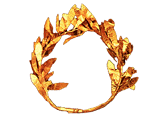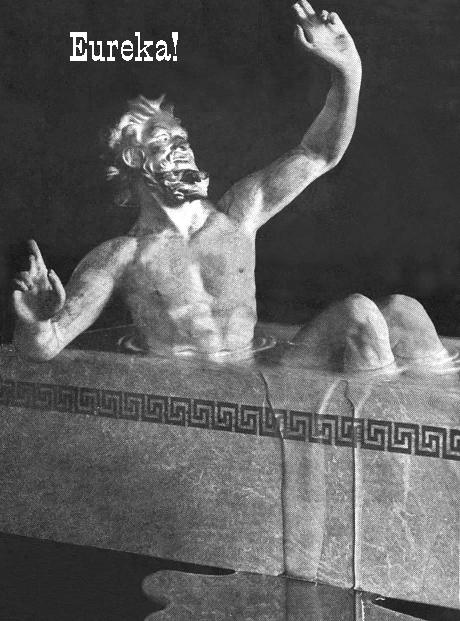
Golden wreath from Amphipolis, Macedonia (4th century BC)

Golden wreath from Amphipolis, Macedonia (4th century BC)
In the first century BC the Roman architect Vitruvius related a story of how Archimedes uncovered a fraud in the manufacture of a golden crown commissioned by Hiero II, like the one above. Suspecting that the goldsmith might have replaced some of the gold given to him by an equal weight of silver, Hiero asked Archimedes to determine whether the wreath was pure gold.
Because the wreath was a holy object dedicated to the gods, Archimedes could not disturb the wreath in any way. Archimedes' solution to the problem is described by Vitruvius.
"[Archimedes] happened to go to the bath, and on getting into a tub observed that the more his body sank into it the more water ran out over the tub. As this pointed out the way to explain the case in question, he jumped out of the tub and rushed home naked, crying with a loud voice that he had found what he was seeking; for he as he ran he shouted repeatedly in Greek, "Eureka, eureka." meaning "I have found (it), I have found (it)."
